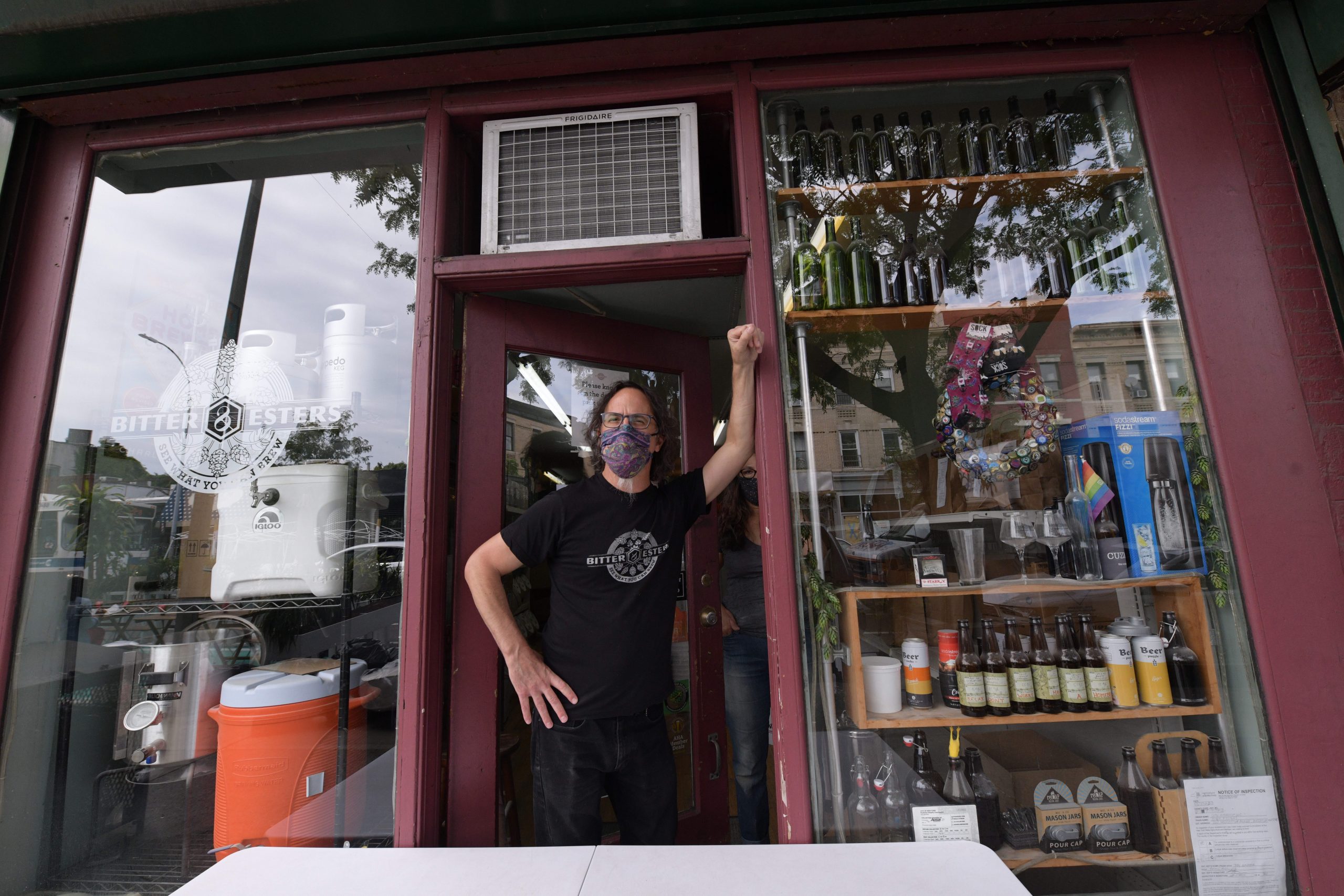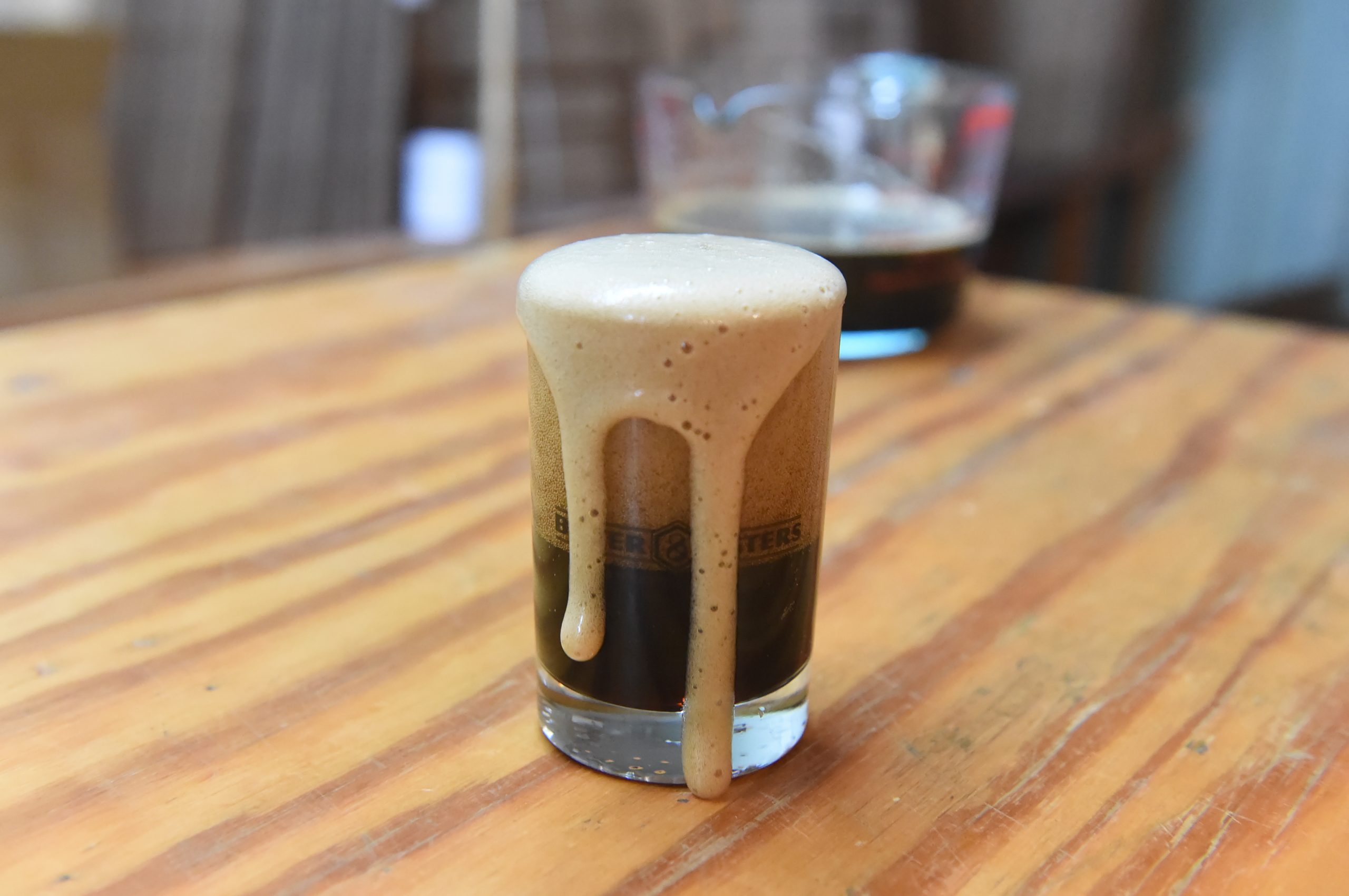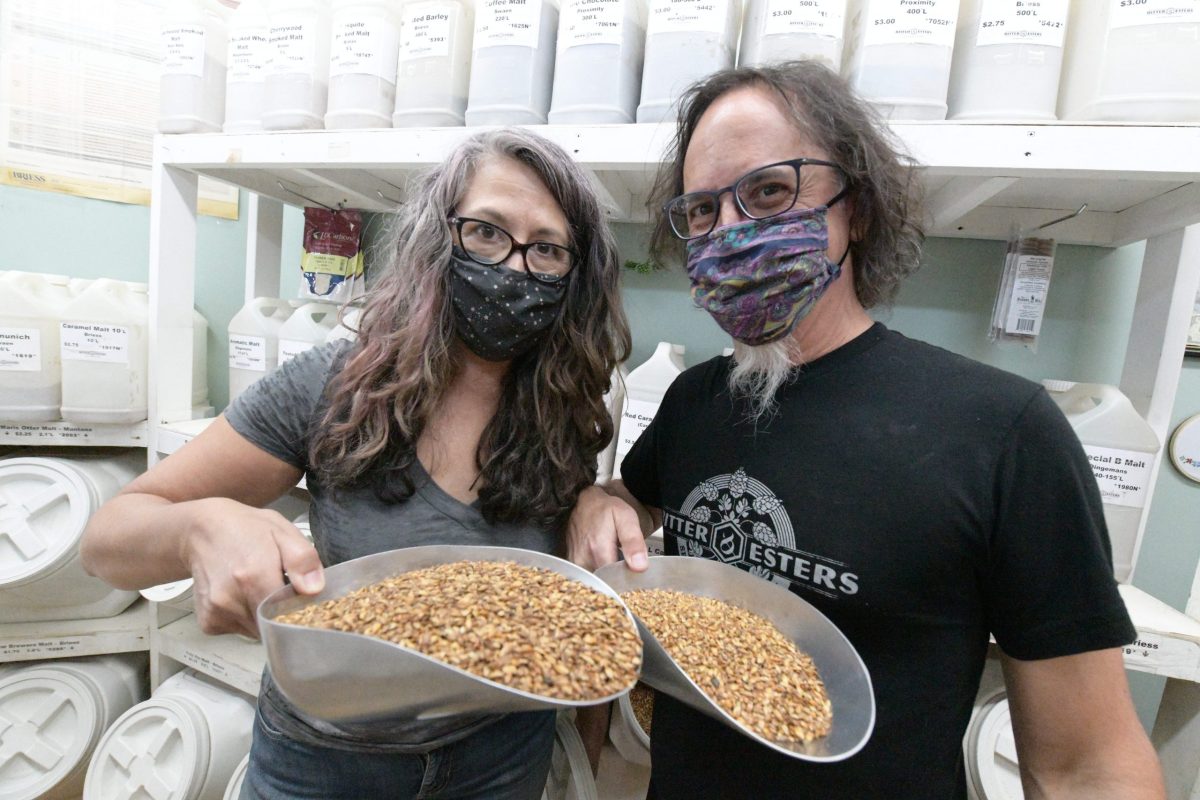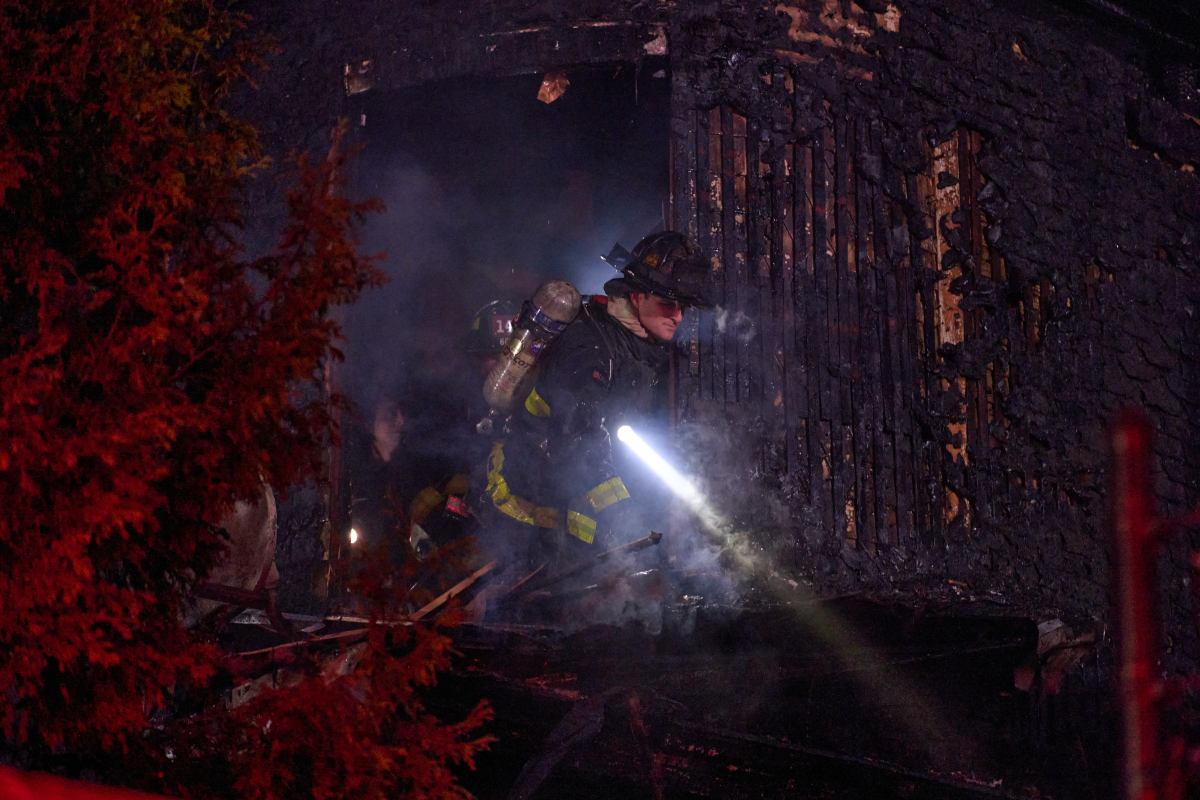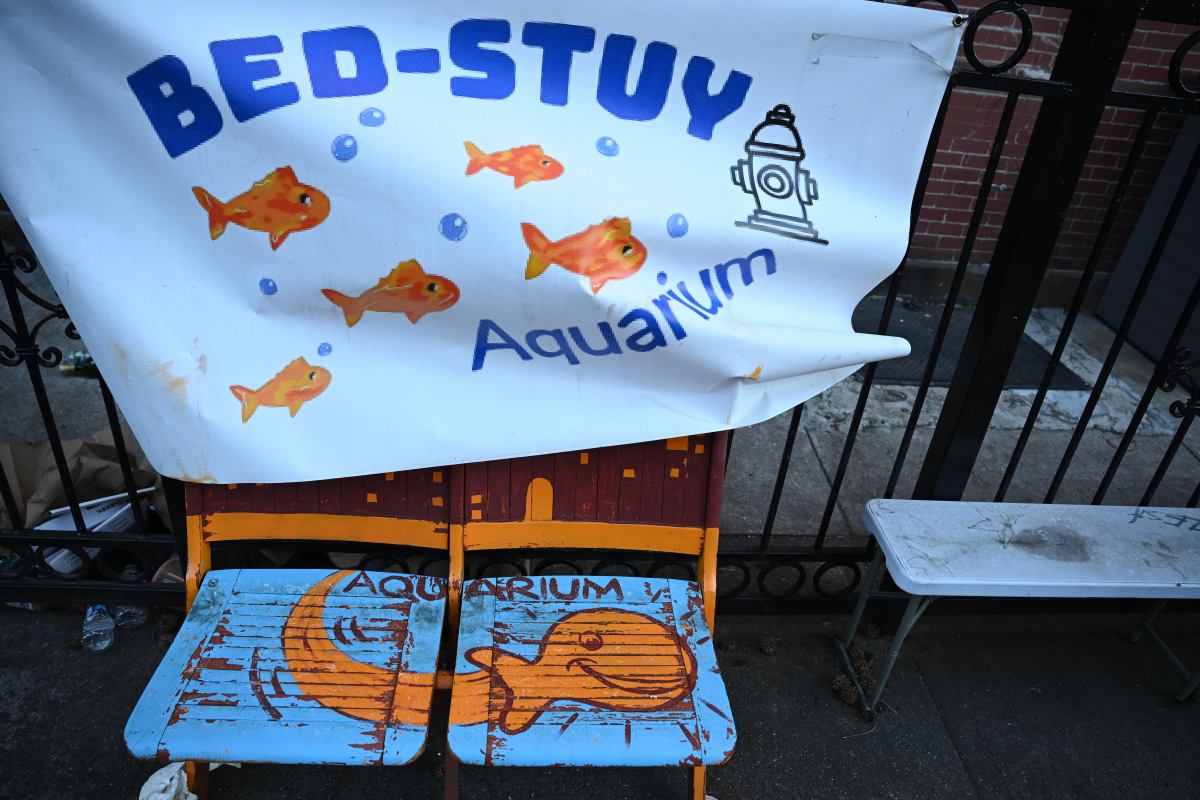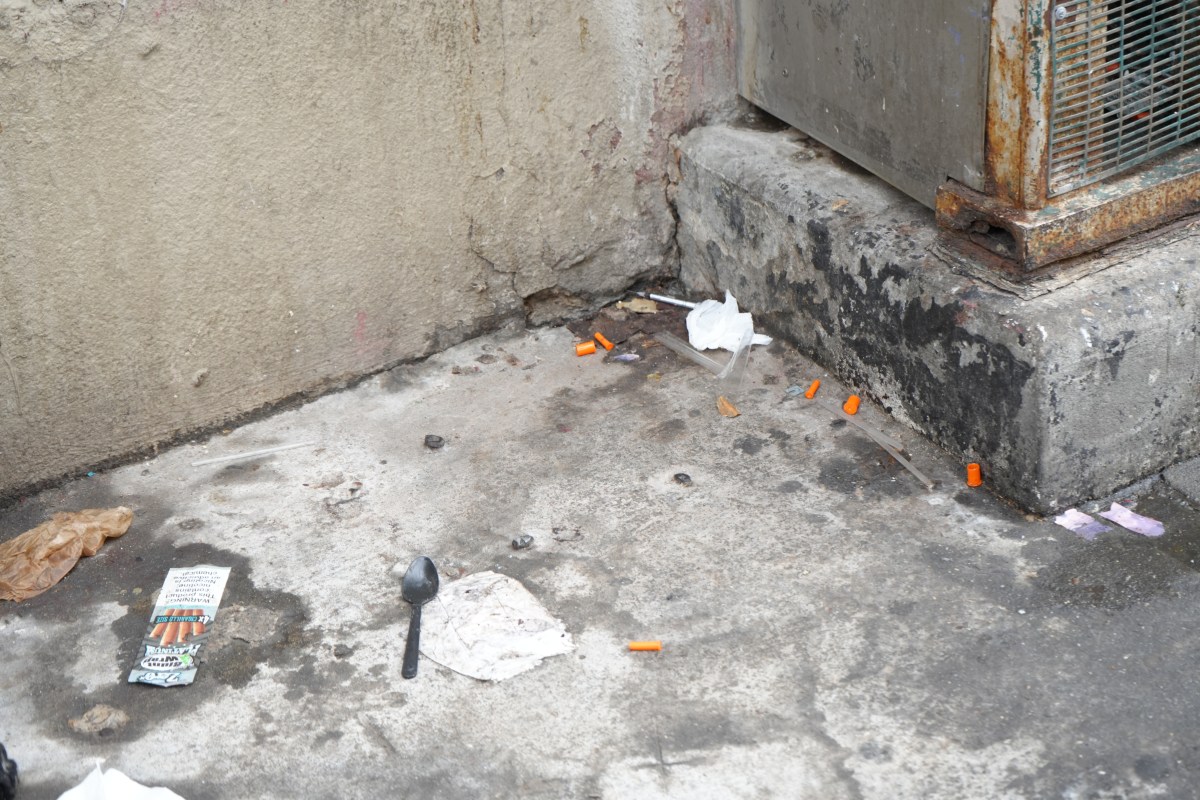
The COVID-19 pandemic has been n0thing short of a financial disaster for most mom-and-pop establishments in the city — with many forced to close for months at a time, or face severe restrictions on their customers to avoid contamination.
But for partners John LaPolla and Douglas Amport, business has been as brisk as a frosty fresh pint of home-brew beer as Brooklyn’s Bitter and Esters never had to close.
While they had to restrict customers from coming inside their establishment on Washington Avenue in Prospect Heights — the only home-brewing shop in New York City — they already had a powerful web-based operation and a strong local following that had customers from all over lining up to brew their own beers at home.
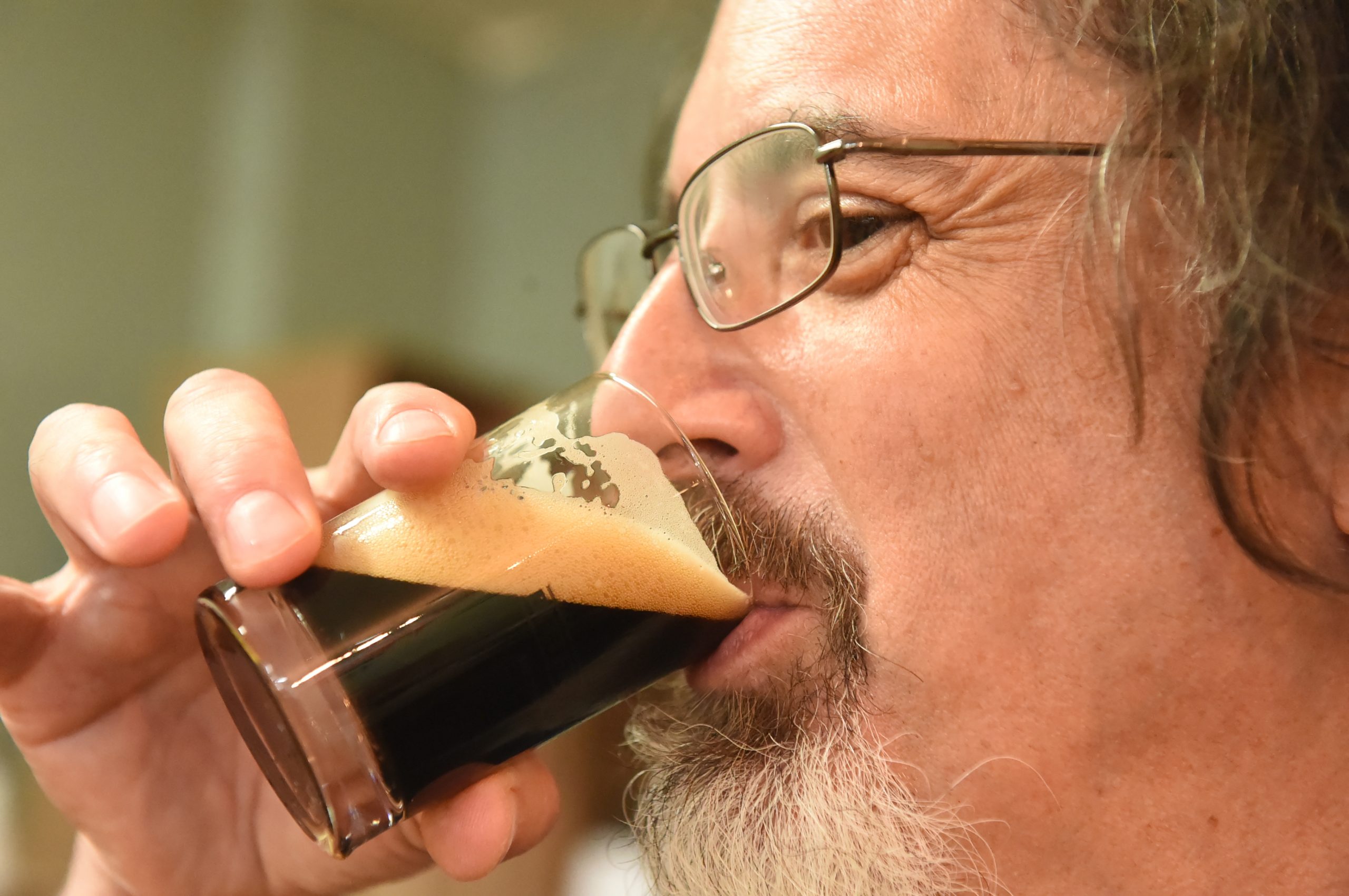
Before the COVID-19 restrictions took hold, Bitter and Esters would allow customers to come inside the store, make their own mixes of ingredients, browse the shelves for spices and equipment to turn their homes into breweries. Ingredients for making beer adorn the walls including the yeast, hops, and a myriad of spices from ginger to various flavored malts.
At least eight brewing clubs would meet in the shop to compare recipes and taste each other’s wares. They also had brewing classes that were always overbooked. But that had to stop in March when the state shut down businesses and ordered residents to shelter in place so as not to further spread the virus.
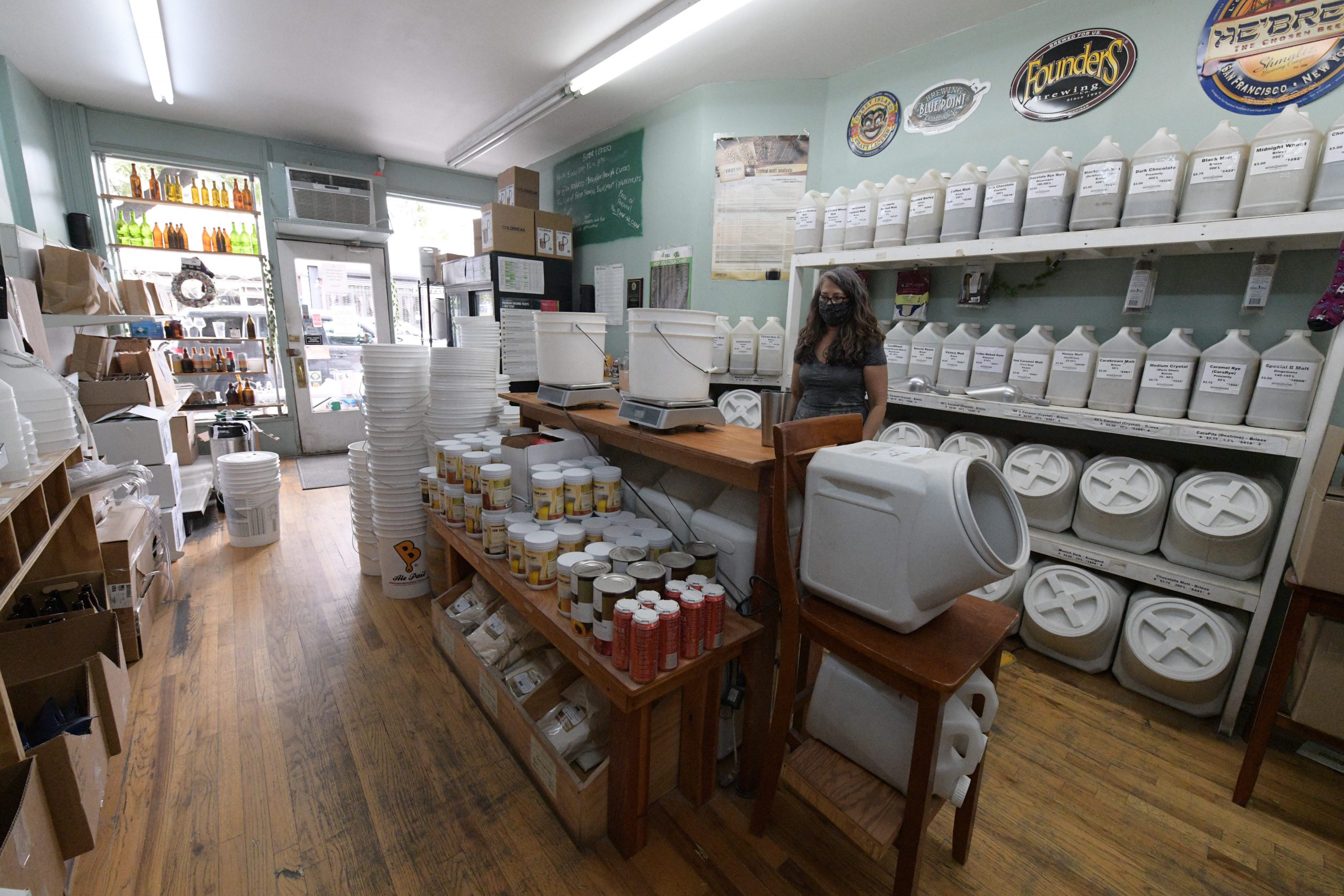
Fortunately for LaPolla, he said their business was considered “an essential business,” selling products considered to be food-related, and therefore technically allowable. But they decided to keep their doors closed to customers, but that didn’t stop their business.
Instead, the business blossomed into a strong online sales, and loyal customers would call in, or come to the shop to pick up ingredients. It became so busy, they could barely keep up with orders and were having supply problems with vendors who were being hit by COVID-19 as well.
“Before COVID we ran the retail shop upfront – customers would come in, choose a recipe and get own stuff – they did all of it and we just guided them along,” LaPolla said. “We would hold classes here in the rear of the store, we would make up to 15 gallons of beer, and a brewmaster would walk you through the process. But that all changed with COVID.”
Always conscious of the revenues, LaPolla said they were already concentrating on their online business, his younger partner bringing tech-savvy to the table since their founding in 2011. So they were preparing to celebrate their 10th anniversary when COVID hit, but they can still celebrate to some degree as their business continues to hum along.
“We were considered in the category of a food handler or grocery store, so we have that license – but we were not going to let anyone in store out of concern for own safety and customers,” LaPolla said. “But we were ready because two years earlier our online store became more user friendly and that saved us. The first week, people were buying week and business doubled. As people were finishing their puzzles, they wanted to do new things at home, so they were buying brewing kits. And more women began making their own – there is even a brewing club run by women.”
Soon, Bitter & Esters were hosting online Zoom classes and while they reduced their workers because no customers were coming into the store, they were busy fulfilling orders, with the help of LaPolla’s girlfriend Carla Coria, who toiled to assemble orders for both online mail order and loyal clients who pick up at the store without having to enter.
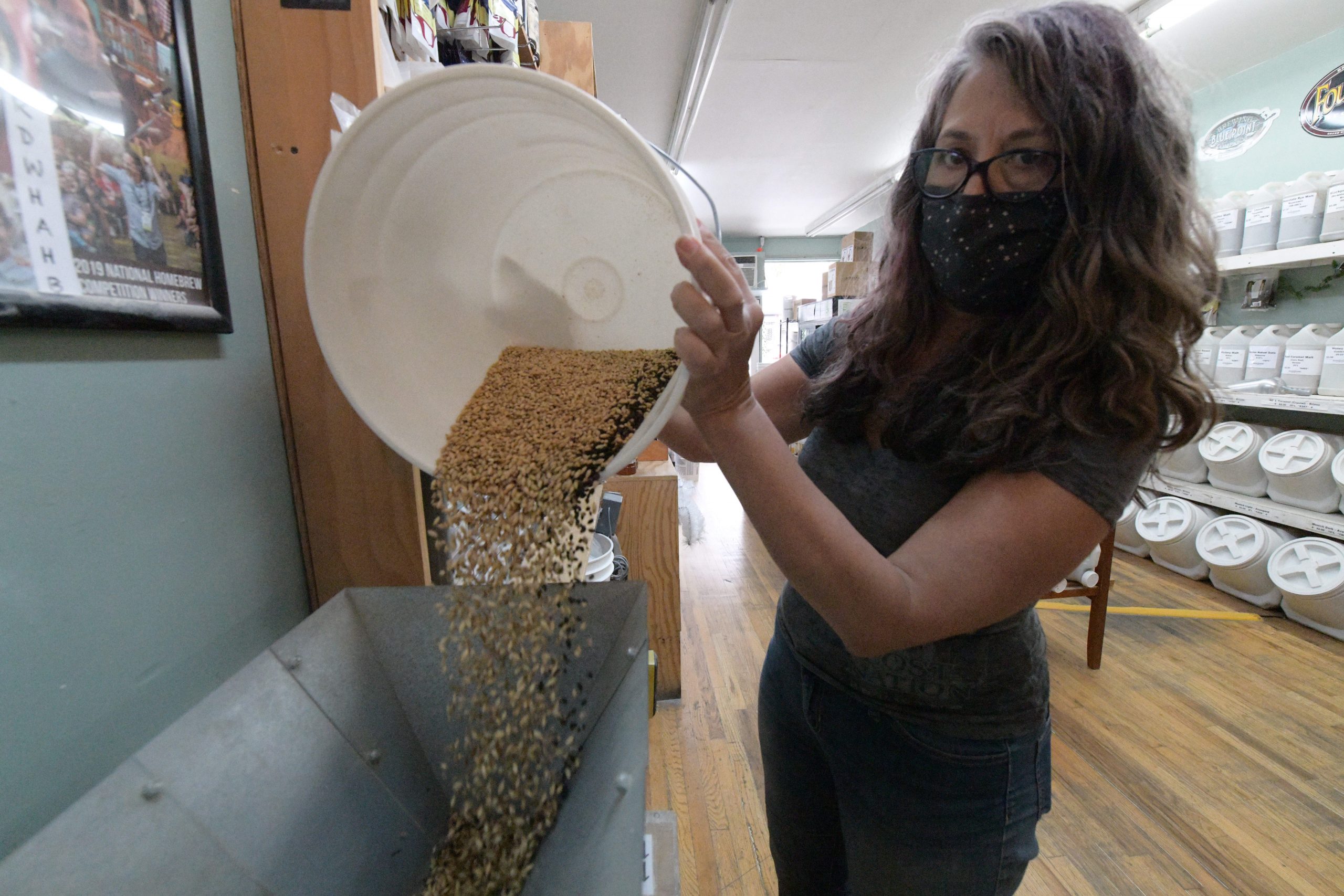
“One customer said he had two kegs he had made and thought that would be last summer – five gallons each – but then it lasted only two weeks and he was back to make more,” LaPolla said.
LaPolla has been a homebrewer since 1992, having been a sound man in the filmmaking business – but the business was “difficult.” He then worked in a photo lab, where he met his girlfriend. His partner was producing films and he was then working a printing press, but neither was doing as well as he liked, and “we saw the writing on the wall.”
The two came together with the help of loans from friends and so six blocks from his home, LaPolla opened the store. Their expertise became well-known amongst the thousands of homebrewers in the city and in 2019, they were awarded Home Brew Shop of the Year by the American Home Brewers Association.
Making all the right moves before the pandemic, seemed to make them prepared for the worst.
“We had a good following, before COVID-19, so now people wanted to do this even more,” LaPolla said. “So during the pandemic, online sales rose from other states including Texas, Michigan, Massachusetts, Maryland Florida, California – I’d say, ‘don’t you have homebrew shops in California?’ There is a lot of sales like that. But our business is mainly in New York with most orders online and Carla has been fulfilling orders. We also do curbside pick up and now have UPS next day with a discount for New York to stay competitive.”
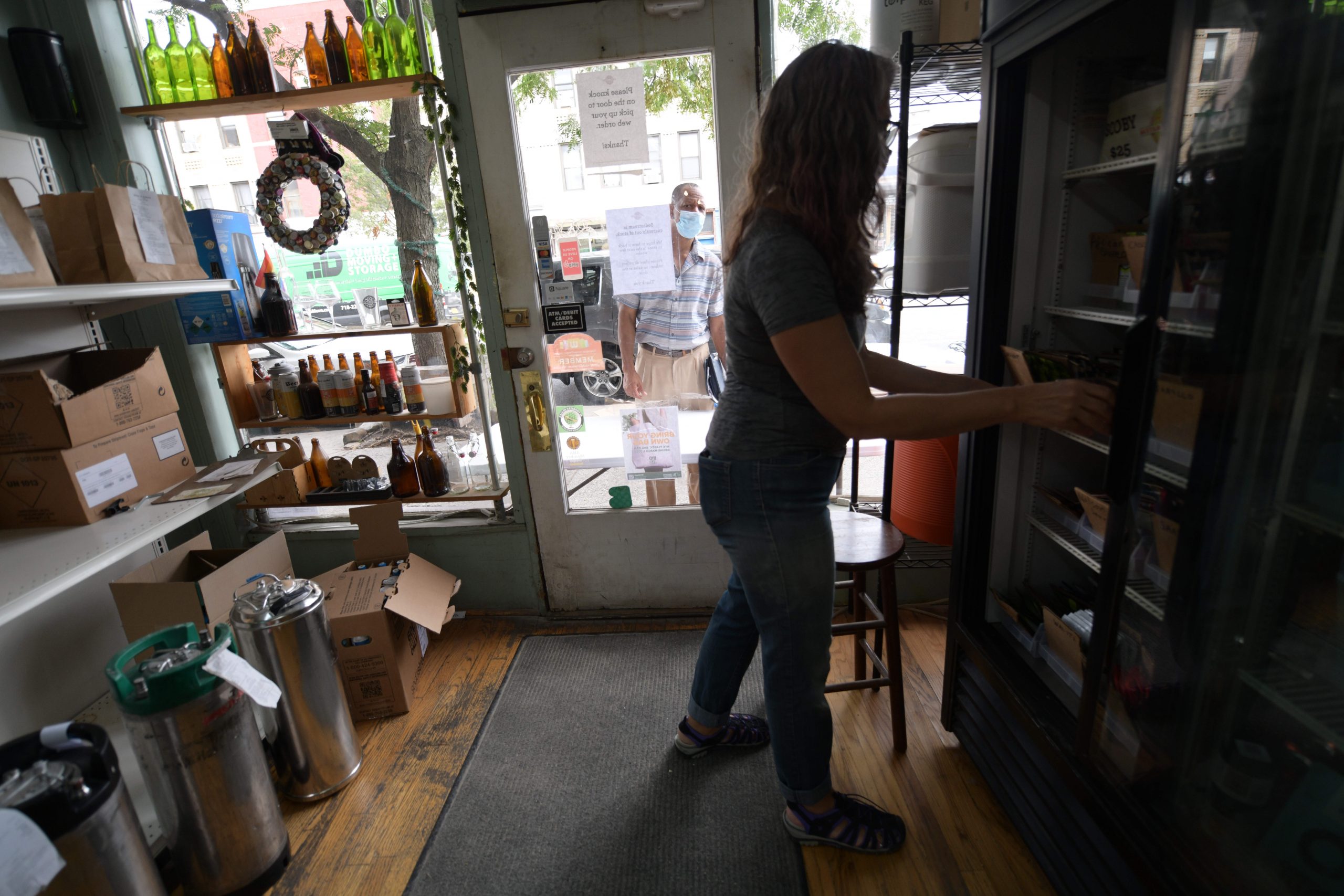
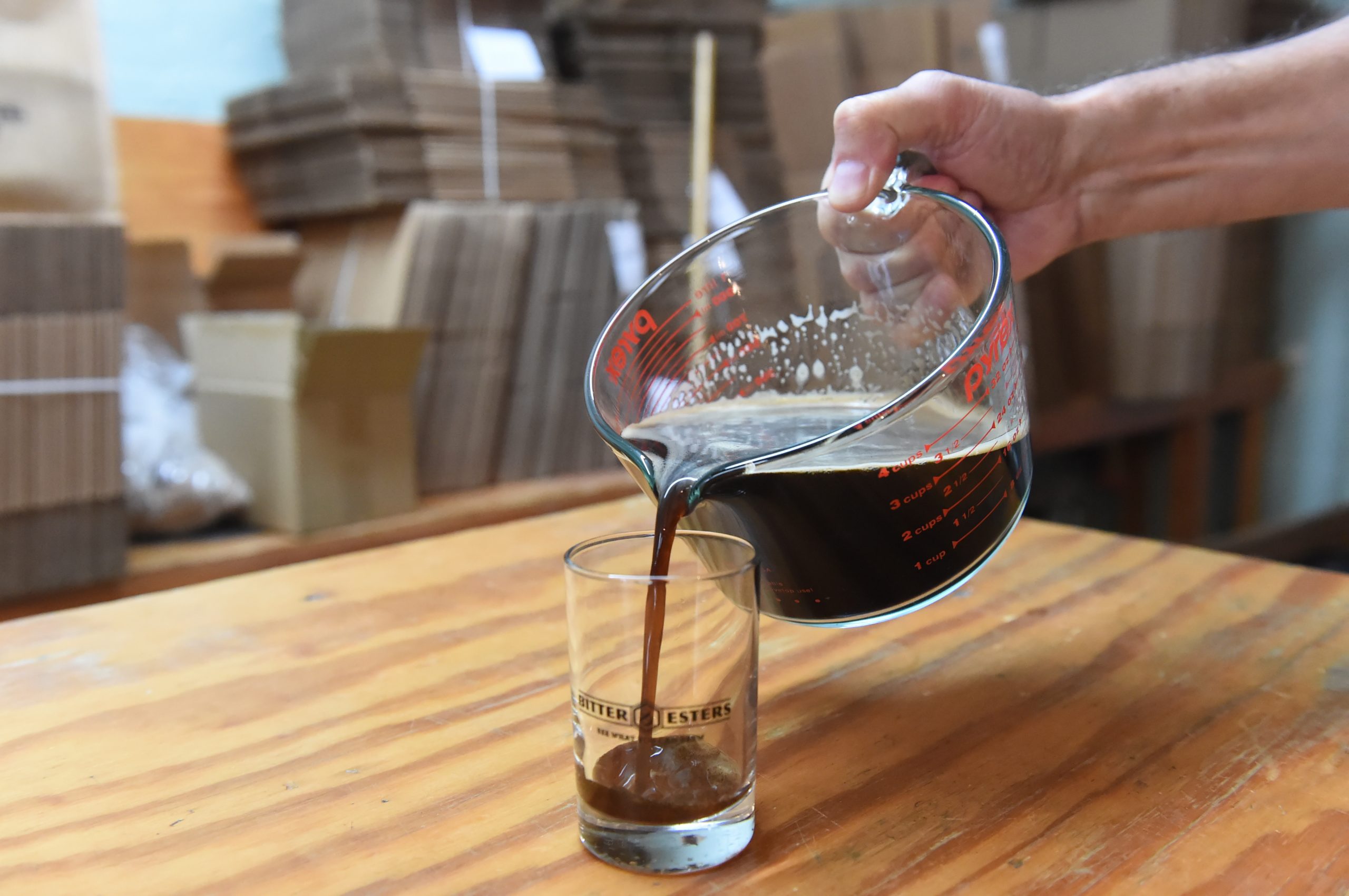
Bitter & Esters has also been quite creative creating kits for making kegs of fresh ale. Some fo the sames include “Into the Cosmos Rye,” “Bock to the Future,” and “Cocoweiss Rye.” LaPolla poured his latest, “Black is Beautiful,” a full bodied dark beer with a hint of berry. Fifteen percent of the proceeds of this beer kit and two other recipes, contribute to the New York City brewers guild – an internship program for people of color who want to get into the brewing business.
Unfortunately, the downside of the business has been their supply chain is slow – they are having trouble getting soda stream and seltzer machines. CO2 is running out and orders take up to four weeks. He said one supplier has shut down for more than a month.
“Like everyone else, we didn’t expect this pandemic, but we are proud of the fact we buckled down and said we gotta do this – stay in business,” LaPolla said, adding that while some of 50 breweries in New York City are doing well on curbside pick up, he feels for the restaurants and bars – the people in the service industry – “these guys got hit hard.”
“This is something you hear and shops are dropping – who would’ve thought Lord and Taylor would go out of business,” LaPolla said. “The Amazons have been tough on retail and the mom and pops have been hit hard. So I encourage people to shop locally – we really don’t want to see it go.”
